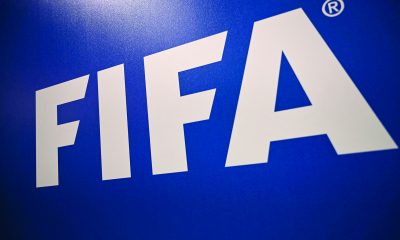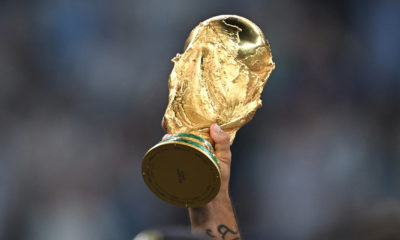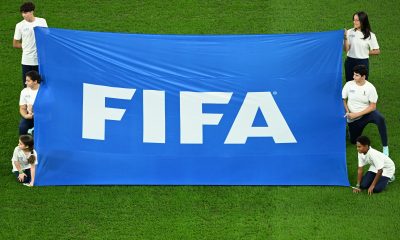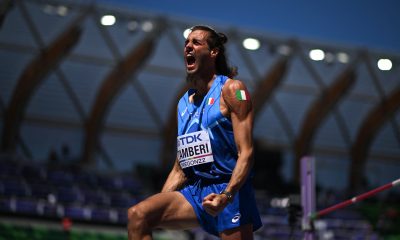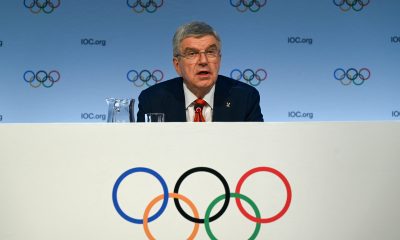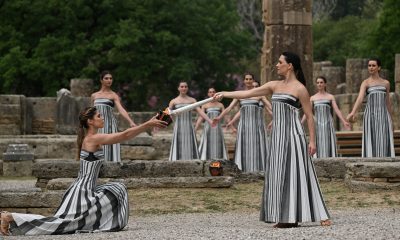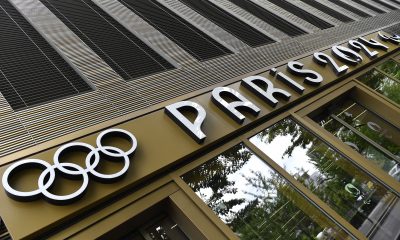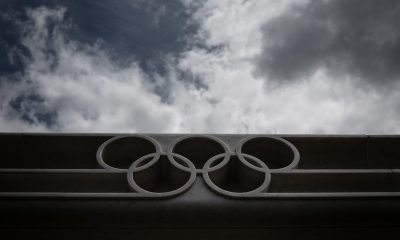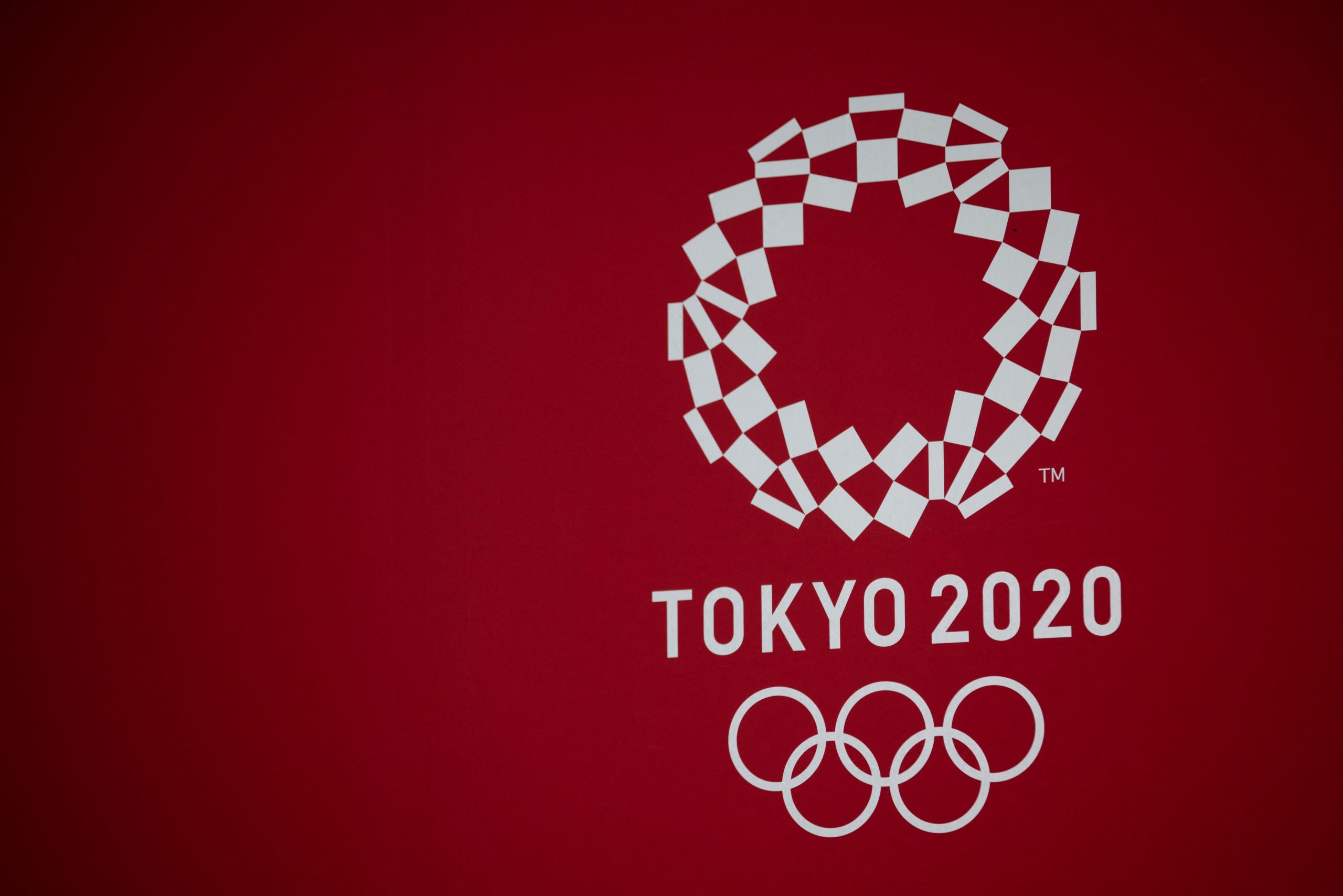
Come July 23, millions of people across the world are expected to tune in to watch the Olympic Cauldron at the New National Stadium in Tokyo, Japan be lit up which will symbolise the start of the delayed 2020 Tokyo Olympic Games.
At the time of writing this article, questions are still being asked on whether the Games can actually take place unhindered owing to the ongoing COVID-19 pandemic.
However, both the International Olympic Committee (IOC) and the Tokyo Organising Committee are adamant that the Games will commence as planned.
The Olympic Games are a unique global sporting event that is made up of three types of Games; Summer, Winter as well as the Paralympic.
As one of the world’s most watched and largest sporting event in the world, they offer a celebration of the best of sports as well as give an opportunity to the host city and country to show off their potential in hosting such Games and showcase what they have to offer.
For many, the most recognisable symbol of the Olympic Games is the famous Olympic Symbols, five multi-coloured intertwined rings that represent the Olympic Games.
The Olympic Games are a multi-billion generating sporting event.
In the Olympic cycle 2013-2016, that included the 2014 Winter Games in Sochi and 2016 Summer Games in Rio, USD $5.71 billion in revenue was made by the IOC.
Such revenue primarily emanated through the sale of broadcasting and marketing rights as well as other income streams, such as sponsors, sale of tickets and official merchandise.
In order to ensure such a steady revenue stream, 90% of which is eventually redistributed by the IOC for the benefit of sports and athletes around the world, the IOC has in place a robust intellectual property strategy that protects the intellectual property assets associated with the Games.
Rule 7 of the Olympic Charter states that the Olympic properties include the Olympic symbol as well as the Olympic flag, motto, anthem, identifications (such as “Olympic Games” and “Games of the Olympiad”), designations emblems, the Olympic flame and torches.
All rights to any and all Olympic properties belong exclusively to the IOC, including rights to their use in relation to profit-making, commercial or advertising purposes.
It is said that the intellectual property journey pertaining to any edition of the Games begins around ten years prior to the Olympic Cauldron being lit up.
Throughout this journey, intellectual property is either created, commissioned, acquired or otherwise secured.
The first stage in the intellectual property journey is to register the trademarks that are associated with a particular Games edition. These are done well in advance of a particular Games.
As a matter of fact, the trademarks associated with Paris 2024 and Los Angeles 2028 have all already been registered, including the registration of domain names.
One of the obligations that a host city chosen to host the Games must abide to is to enact specific domestic legislation which goes beyond the protection that is normally afforded by the traditional trademark or copyright laws of that particular host city.
Such legislation usually creates and enforces a large buffer zone including land, sea and air within which brands not associated with the Games cannot be seen on display, and in default, hefty fines would be imposed.
Once a host city is selected, the IOC grants that host city exclusive use of their intellectual property related assets.
Sponsors and broadcasters are important sources of revenue to the IOC and to the success of the Games. Both pay astronomical amounts of money to be exclusively associated with the Games.
Financial support
As a return for their invaluable financial support to the Games, they are granted exclusive rights, including worldwide marketing rights, broadcasting rights, hospitality rights and other sponsorship benefits, as well as authorized to use the Olympic Rings, the Olympic Archives and other intellectual property protected assets that are associated with the Olympics.
The IOC has embraced the rapid development in the use of digital platforms, including social media, to interact with and engage audiences, especially young people.
The IOC offers abundant and freely available content across different platforms around the world, which at the same time reduces the incentive to access pirated clips.
Nonetheless, the IOC uses advanced anti-piracy technology to prevent, track and where necessary take the necessary legal action against the uploading of unauthorised Olympic content. Such measures have helped to substantially reduce piracy of footage from the Games in recent years.
The Games are as much a celebration of innovation and creativity as they are of humanity, fair play and sporting excellence.
Intellectual property protection is crucial in ensuring that the Games can continue to generate revenues to be then reinvested back into the sporting society around the world.
The strategic use of intellectual property and the rights that protect all tangible and intangible assets associated with the Games actually ensures that the Games can take place.
The intellectual property rights associated with the Games protect the integrity and uniqueness of the Olympic Games, together with their legacy.

World Cup News
-
FIFA World Cup
/ 1 month agoSon scores but Thailand hold South Korea in World Cup qualifier
Son Heung-min scored but South Korea were held 1-1 at home by Thailand in...
By AFP -
FIFA World Cup
/ 1 month agoJapan-N. Korea World Cup game to stay in Pyongyang, JFA says
Japan’s World Cup qualifier against North Korea will be played in Pyongyang as planned...
By AFP -
FIFA World Cup
/ 2 months agoGerman ex-FA bosses on trial over World Cup tax evasion
Three German ex-top football officials went on trial on Monday in a 13.7-million-euro ($14.8...
By AFP -
FIFA World Cup
/ 2 months agoSaudi Arabia formally launches bid for 2034 World Cup
Saudi Arabia formally launched its bid to host the 2034 World Cup on Friday,...
By AFP

English Premier League
Watch: Klopp warns title-chasing Liverpool over ‘derby fever’ in Everton clash

Coppa Italia
Milik fires Juventus into Italian Cup final

English Premier League
Five-star Arsenal thrash Chelsea to open up Premier League lead

American Football
NFL Chiefs extend contracts for coach Reid, top execs

English Premier League
Feyenoord boss Slot leading race for Liverpool job – reports

English Premier League
Unai Emery extends Aston Villa contract

Winter Olympics
Watch: Geisenberger wins sixth Olympic medal to tie luge record



